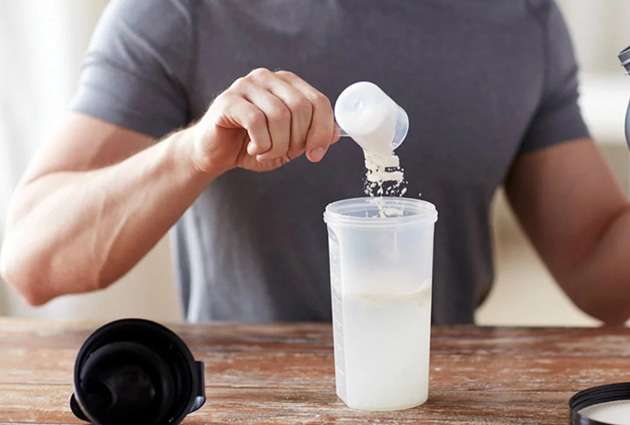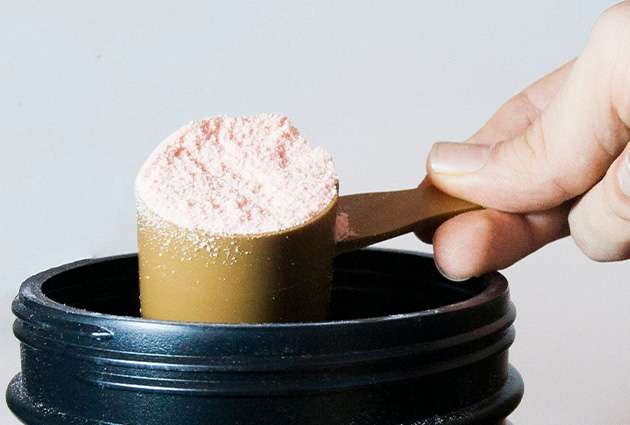PCOD Problems After Marriage: Causes, Symptoms & Treatment
Pcod Problem After Marriage: Symptoms & How To Combat It?
Do you also suffer from a PCOD problem? Have you made every effort but still can’t bring your symptoms and discomfort under control? There are others right beside you. You’re not alone. This disorder affects one in five Indian women. Don’t worry, though! PCOD can be overcome, and healthful living is possible. PCOD problems after marriage can only be healed with proper treatments. Kindly consider heading to your family physician or doctor to get an opinion about your PCOD problem. You can lead a normal lifestyle. However, the journey isn’t easy as you need to be patient but with the right measures, nothing is impossible.
A natural cure for PCOD problems cannot be assured, nor should it be taken in place of medication or other medically prescribed procedures. In addition to using medications, you can also try these natural treatments to relieve the symptoms of PCOD. Rather than mindlessly adopting these cures, it is advisable to speak with your physician and determine what is vital for you if you do decide to choose a natural treatment for PCOD.
Plix’s Women’s PCOD Care balances your body’s hormones and helps adjust your menstrual cycle with a harmonious combination of eight potent herbs, including Furocyst and Shatavari. You can put an end to your unpredictable menstrual periods and begin to feel healthy and revitalized once more.
PCOD Symptoms
Your ovaries are impacted by the PCOD problem, which impacts them. The synthesis of estrogen, progesterone, and androgen, is the prime objective of the ovaries. However, if a female has PCOD, her hormonal output is out of sync, which causes an unusual secretion of such male hormones. Consequently, a few of the most typical signs include;
- Excessive hair growth around the facial and neck regions
- Acne
- Weight gain
- Irregular menstrual cycle or excessive bleeding during periods
- Sleep disorders
Let’s understand irregular periods. Although the length of your cycle may fluctuate by various days, the typical menstrual cycle lasts 28 days. Your period’s exact date and the beginning of the following cycle are considered one cycle. Whenever your cycle lasts for fewer than 24 days, lasts for further than 38 days, or swings by much more than 20 days from month to month, your cycles are regarded as irregular. According to some studies, being married could affect a woman’s menstrual cycle and make certain menstrual problems, such as headaches and cramps, worse. Continue reading to discover more regarding the relationship between menstruation and irregular periods.
5 reasons why women may experience pcod problems after marriage. The following are some potential reasons for irregular periods after marriage:
PCOD Problem After Marriage
-
Stress
According to research, emotional stress short-term changes the chemicals that control your menstruation. Being newlyweds can be difficult as you get used to your new beginnings and obligations. The planning process of a wedding and also being a part of the celebration may be stressful as well. This stress alone could disrupt your cycle. Whenever your stress numbers decrease, the cycle should resume its normal course.
-
Weight Fluctuations
Your chances of putting on weight might rise after marriage. Women are more prone than men to put on weight after marriage. To explain why this is the situation, several explanations exist. Modifications in diet or marital contentment as well as a lack of interest in dating elsewhere could be determined significantly. Scientific studies have demonstrated that rapid or large weight fluctuations can result in irregular menstrual cycles. Your body’s production of estrogen is impacted by body fat. Heavier women may generate greater estrogen than those who are lighter. As a result of this rise in estrogen, your menstrual flow may become irregular, missing, or heavy.
-
Contraceptive Pills
You may get irregular periods if you start or stop using contraceptive pills. Certain birth control methods can indeed cause you to often skip your period or even stop having periods entirely.
After beginning or quitting contraceptive pills, your system may readjust in 3-6 months. If you experience problems after switching contraceptive pills, your doctor could advise doing so. If you forget to take a contraceptive pill or have pretty much stopped using it, you run the risk of getting pregnant. Use a home pregnancy testing kit to determine whether you are pregnant if you haven’t gotten your period and have a suspicion that you are.
-
Routine Modification
Your menstrual cycle may be impacted by changes to your everyday schedule. Changing your regular schedule so drastically after tying the knot can have an impact on your menstruation. Transitions that frequently come with marriage include moving into a brand-new home, adapting to a fresh schedule, and dining or cooking in a different way.
-
Pregnancy
Periods are missed during pregnancy. However, it can also lead to other anomalies in the initial stages of pregnancy, including blood spotting and implant bleeding, that mimics very mild or light menstruation. Consider a home pregnancy test to check if you’ve had unsafe intercourse and are having erratic menstrual periods. Other early indications of pregnancy could be:
- Weariness aching breasts or nipples
- Nausea; often referred to as morning sickness but occurring at any hour of the day
- Bloating or gas
- Fatigue or tiredness
- Moderate cramps
How To Combat the PCOD Problem
Check out these few strategies you can employ to combat the PCOD problem.
Limit Your Carbohydrate Intake
An unhealthy diet that is abundant in fat or carbohydrates might cause your insulin concentrations to rise and your overall blood sugar to climb. So, if you have a PCOD problem, it is preferable to choose a diet that is low in carbohydrates as a PCOD treatment.
Maintain Your Activity
Frequent exercising can help you maintain normal blood sugar levels and healthy body weight. Start slowly and then build on that.
Alteration Of Lifestyle
If you have obesity in addition to PCOD, your doctor will have you follow a weight-loss regimen to treat PCOD. Your PCOD problem can become better if you lose merely 5% of your total body fat. Starting to lose some weight also helps your medication work better.
Birth Control Pill Combinations
The synthesis of androgen is reduced when you are taking pills for birth control that include both progestin and estrogen. In addition, it can help to prevent excessive bleeding and lower the likelihood of developing endometrial cancer. Nevertheless, it’s crucial to see your physician before utilizing the medication.
Avoid Fad Remedies
One error PCOD problem sufferers make is that people often try fad remedies, which could make their disease worse. Even though the internet is rife with both good and poor information, conduct your homework and consult your physician to determine what is correct for you and exactly what is incorrect.
Foods You Must Consume To Combat PCOD/PCOD
-
Nuts and fruit (Excellent Sources Of Antioxidants)
Although it’s a broad, diversified topic, you can discover a listing of the top 10 foods strong in antioxidants online. These include Goji berries, blueberries, pecans, and wonderful chocolate, all of which are strong in antioxidants. In any situation, each of these foods is essential for a balanced, nutritious diet, but if you have PCOD, their importance is increased even further.
-
Veggies with green leaves
Irrespective of the PCOD problem, your diet plan implemented, must be choosing fresh-cut green leafy vegetables. It’s always a great choice. They are ideal for sustenance and losing weight since they are simultaneously nutritionally dense and quite low in calories. Green leafy vegetables like spinach and kale have significant Vitamin B content, which is especially important for PCOD problem sufferers. Remarkably, more than 72% of female PCOD sufferers have vitamin B deficiency!
- Allowable Healthful Fats
Do not immediately turn around and flee because the enemy is not obesity. To eat properly when you suffer from PCOD, you should incorporate a range of beneficial and healthful fats into your daily diet, such as organic avocados. Beneficial fats contain essential fatty acids, which seem to be essential components in maintaining cell walls. They are crucial for controlling weight as well as for sustaining hormone balance.
Foods To Avoid For PCOD Problem
-
Dairy Products
Why a patient with a PCOD problem must avoid dairy can be better understood if you are familiar with Insulin Growth Factor 1’s mechanism of action. Females with PCOD problems were seen to create much more IGF-1 than certain other individuals, and IGF-1 mimics the functionality and structure of insulin concentrations in your system. Items made from cow’s milk that contains IGF-1 enhance these amounts in your body considerably more!
-
Processing of Foods
Packaged or processed foods are at the top of the checklist of foodstuffs to avoid while suffering from a PCOD problem. Processed foods often have a higher Glycemic Index, which is closely associated with insulin sensitivity and diabetic illnesses. High GI meals should indeed be shunned since, as has been originally saying, they are probable to increase your blood sugar levels. Women who have PCOD are significantly more likely to get diabetes. This includes manufactured meals like cookies and cakes and carbohydrates like rice, potatoes, and slices of bread.
- Unwholesome Fats
It has been shown in the past that “particularly healthy or good fats” help effectively regulate the PCOD problem whereas “poor or harmful fats” could have the opposite effect. Hydrogenated fats are included in various dairy products, including milk and cheese, as well as certain packaged, processed, or fried foods. The indications of the PCOD problem can be made worse by these toxic lipids, which can also increase weight issues and estrogen concentrations.
Frequently Asked Questions
1. What is the primary cause of PCOD?
PCOD’s origin remains a mystery. Nevertheless, there is evidence linking PCOD problems to heredity, excessive levels of male hormones, inflammation, and excessive insulin. A few more causes of PCOD include pollution, early puberty, and bad lifestyle choices.
2. How much should I continually take these PCOD Care pills?
For the best benefits, use these pills on a routine basis for 3 to 6 months. You must combine these capsules with a healthy diet and up to almost 60 minutes of daily exercise in addition to these recommendations.
3. Does PCOD Care treatments have any negative effects?
The treatment for PCOD problems doesn’t have any negative effects. Furthermore, none of the items at PLIX includes artificial components and is 100% plant-based. This combination has no adverse effects because it only comprises natural herb ingredients.
4. Why wouldn’t PCOD be treated?
If neglected, PCOS can develop major consequences including the possibility of hypertension, hyperglycemia, endometriosis, and pregnancy troubles, whilst a PCOD problem can result in type II diabetes, obesity, or weight gain, as well as other mental health problems in the potential future owing to hormonal changes.
5. Is PCOD a chronic illness?
Although there is presently no cure for PCOD, the majority of women can still live rather normal lives. This requires active living and health management. Each symptom, such as irregular periods, growth of facial hair around the neck and facial areas, weight gain, acne, and infertility issues, is addressed on an individual basis.















